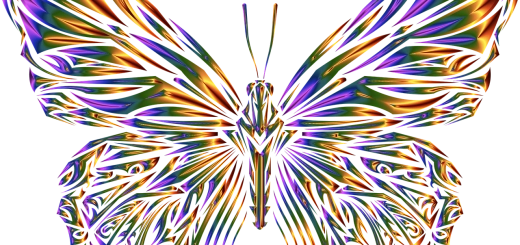Puja Ceremonies: Deepening Spiritual Connection

Looking for more amazing products? Check out our online store and explore our collection here! Happy shopping!
Before diving in, please note: This post is for informational purposes only. If you’d like to know more about how we approach topics, feel free to check out our friendly Disclaimer Page.
Hey there, amazing readers! 
We’re committed to delivering quality posts, and your support (even just sticking around despite the ads) means everything to us. So, bear with us, and thanks for helping us keep the good vibes rolling. Now, on to the fun stuff!
TRANSLATE BUTTON AT THE END OF THE ARTICLE
A Quick Overview
Puja ceremonies are an integral part of Hindu and Buddhist traditions, serving as a way to deepen one’s spiritual connection to the divine.
These rituals involve prayers, offerings, chants, and meditation, all aimed at honoring and invoking the presence of deities and spiritual beings.
Puja ceremonies are performed for various reasons, such as seeking blessings, guidance, protection, and spiritual growth.
Understanding the significance of puja ceremonies and their practices can help individuals establish a stronger connection to the divine and experience inner peace and spiritual fulfillment.
The Significance of Puja Ceremonies
Puja ceremonies hold great significance in Hindu and Buddhist cultures as they provide a sacred space for individuals to connect with the divine.
By performing puja, practitioners show reverence and gratitude to deities, seek their blessings, and purify their mind and spirit.
The act of puja is believed to create a spiritual bond between the worshipper and the divine, fostering a sense of devotion and connection that transcends the material world.
Ultimately, puja ceremonies serve as a way to cultivate inner peace, harmony, and spiritual growth in one’s life.
Understanding the Rituals and Traditions
Puja ceremonies are rich in symbolism and tradition, with each ritual serving a specific purpose in honoring the divine.
Common practices in puja ceremonies include lighting incense and candles, offering flowers and fruits, ringing bells, and reciting prayers and mantras.
These rituals are meant to purify the mind, body, and spirit, creating a sacred atmosphere conducive to spiritual connection.
Understanding the significance of each ritual and tradition can help practitioners deepen their devotion and intention during puja ceremonies.
Importance of Sacred Offerings
Sacred offerings play a vital role in puja ceremonies as they symbolize the devotion and gratitude of the worshipper towards the divine.
Offerings such as flowers, fruits, incense, and water are believed to please the deities and attract their blessings.
The act of making offerings is a way for practitioners to express their sincerity and reverence, creating a harmonious exchange between the worshipper and the divine.
By offering sacred items during puja ceremonies, individuals can cultivate a deeper sense of connection and devotion to the spiritual realm.
Tools and Items Used in Puja
Several tools and items are commonly used in puja ceremonies to facilitate the worship and invocation of deities.
Some of the essential items include:
Oil lamps or candles: Symbolize the presence of divine light and wisdom.
Incense sticks: Purify the atmosphere and create a sacred ambiance.
Bell: Used to invoke the deities and ward off negative energies.
Water: Represents purity and is offered to cleanse the mind and spirit.
Flowers: Symbolize beauty, purity, and devotion.
Prayer beads: Used for counting mantras and chants during meditation.
These tools and items enhance the spiritual experience of puja ceremonies and help practitioners focus their intention and devotion towards the divine.
Creating a Sacred Space for Puja
Creating a sacred space for puja ceremonies is essential to establish a conducive environment for spiritual connection and devotion.
Practitioners can set up a small altar or shrine dedicated to the deity or spiritual being they wish to honor.
This sacred space should be clean, peaceful, and free from distractions, allowing individuals to focus their mind and energy on the worship.
By decorating the altar with sacred items, images or statues of deities, and offering bowls, practitioners can create a harmonious atmosphere that invites the presence of the divine during puja ceremonies.
Benefits of Regular Puja Practice
Regular practice of puja ceremonies offers numerous benefits to individuals seeking spiritual growth and connection to the divine.
Understand the Powerful Law of Karma and Its Impact – Explore Here!
Some of the key benefits include:
Cultivating devotion and gratitude: Puja ceremonies help foster a sense of devotion and gratitude towards the divine, promoting a deeper spiritual connection.
Inner peace and clarity: By engaging in rituals and prayers, practitioners can experience inner peace, clarity, and emotional healing.
Spiritual growth and transformation: Regular practice of puja can lead to spiritual growth, self-discovery, and personal transformation.
Protection and blessings: Puja ceremonies are believed to attract the blessings and protection of deities, guiding individuals on their spiritual path.
Overall, regular puja practice can enrich one’s spiritual life and bring a sense of fulfillment and peace.
Invoking Deities and Spiritual Beings
During puja ceremonies, practitioners invoke the presence of deities and spiritual beings through prayers, chants, and offerings.
By calling upon the divine with sincerity and devotion, individuals can establish a sacred connection and receive blessings and guidance.
It is believed that the deities and spiritual beings respond to the heartfelt prayers and offerings of worshippers, showering them with grace, protection, and wisdom.
Through the act of invoking deities, practitioners can deepen their spiritual connection and experience a profound sense of divine presence in their lives.
Mantras and Chants in Puja Ceremonies
Mantras and chants play a crucial role in puja ceremonies as they serve as powerful tools for invoking the divine presence and focusing the mind.
Mantras are sacred sounds, syllables, or phrases that carry spiritual vibrations and are believed to have transformative effects on the practitioner.
By reciting mantras and chants during puja ceremonies, individuals can align their energy with the divine, purify their mind and spirit, and deepen their spiritual connection.
The rhythmic repetition of mantras creates a meditative state that enhances concentration, devotion, and spiritual awareness, leading to a profound spiritual experience.
Deepening Your Connection to the Divine
Deepening one’s connection to the divine through puja ceremonies requires sincere devotion, intention, and spiritual practice.
By approaching puja with reverence, gratitude, and humility, individuals can cultivate a strong bond with the divine and experience a deeper sense of spiritual connection.
Regular practice of puja, along with meditation, self-reflection, and spiritual study, can help individuals deepen their understanding of the divine nature and their own spiritual path.
Through the act of worship, devotion, and surrender, practitioners can transcend the ego and connect with the infinite source of love, wisdom, and light that resides within and around them.
Puja Ceremonies for Specific Intentions
Puja ceremonies can be performed for specific intentions, such as seeking guidance, healing, protection, abundance, or spiritual growth.
By setting clear intentions and focusing their energy and prayers towards a specific goal, practitioners can harness the power of puja to manifest their desires and aspirations.
Whether it is overcoming obstacles, attracting positive energy, or finding inner peace, puja ceremonies can serve as a powerful tool for aligning with the divine will and invoking blessings and support from the spiritual realm.
By performing puja with a pure heart and clear intention, individuals can create positive changes in their lives and deepen their spiritual connection.
Seeking Guidance and Blessings through Puja
One of the primary reasons for performing puja ceremonies is to seek guidance, blessings, and support from the divine beings.
By approaching puja with humility, devotion, and an open heart, individuals can invoke the presence of deities and spiritual beings to seek clarity, wisdom, and protection.
Through prayers, offerings, and meditation, practitioners can communicate their intentions and desires to the divine, trusting in the benevolence and grace of higher powers.
Puja ceremonies provide a sacred space for individuals to connect with the divine, receive guidance, and align with their spiritual purpose, leading to a deeper sense of fulfillment, peace, and divine connection in their lives.
Incorporating Puja into Your Daily Routine
Incorporating puja into one’s daily routine can be a powerful practice for maintaining spiritual connection and inner peace.
By setting aside a few minutes each day for prayer, meditation, and offerings, individuals can create a sacred space within their homes or hearts where they can connect with the divine.
Whether it is lighting a candle, reciting a mantra, or offering a flower, these simple rituals can help individuals cultivate a sense of devotion, gratitude, and connection to the spiritual realm.
By making puja a part of their daily routine, practitioners can experience a deeper sense of spiritual fulfillment, inner peace, and alignment with their true purpose and essence.
Conclusion
Puja ceremonies serve as a transformative practice for deepening one’s spiritual connection to the divine and experiencing inner peace and fulfillment.
By understanding the significance of puja, engaging in rituals and traditions, making sacred offerings, and invoking deities with devotion and sincerity, individuals can cultivate a strong bond with the divine and receive blessings and guidance on their spiritual path.
Through regular practice of puja, incorporating mantras, chants, and prayers, and setting clear intentions, practitioners can align with the divine will and manifest their desires, leading to a deeper sense of spiritual connection, growth, and blessings in their lives.
Embracing puja as a sacred practice can bring profound shifts in one’s consciousness, fostering a sense of unity, love, and harmony with the divine.

The Enlightenment Journey is a remarkable collection of writings authored by a distinguished group of experts in the fields of spirituality, new age, and esoteric knowledge.
This anthology features a diverse assembly of well-experienced authors who bring their profound insights and credible perspectives to the forefront.
Each contributor possesses a wealth of knowledge and wisdom, making them authorities in their respective domains.
Together, they offer readers a transformative journey into the realms of spiritual growth, self-discovery, and esoteric enlightenment.
Release the Weight of Karma and Embrace Freedom – begin here.
The Enlightenment Journey is a testament to the collective expertise of these luminaries, providing readers with a rich tapestry of ideas and information to illuminate their spiritual path.
Our Diverse Expertise
While our primary focus is on spirituality and esotericism, we are equally passionate about exploring a wide range of other topics and niches 

To ensure we provide the most accurate and valuable insights, we collaborate with trusted experts in their respective domains 
Our blog originally focused on spirituality and metaphysics, but we’ve since expanded to cover a wide range of niches. Don’t worry—we continue to publish a lot of articles on spirituality! Frequently visit our blog to explore our diverse content and stay tuned for more insightful reads.
Hey there, amazing reader! 
Check out our store here and take a peek at some of our featured products below! Thanks for being awesome!












